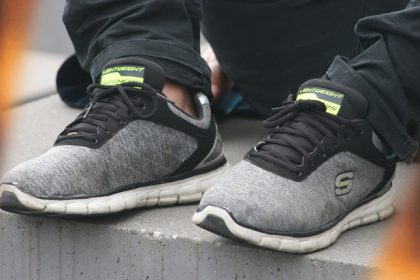Skechers has already protected the term ARCH FIT as a trademark in the USA. However, the desired trademark protection as an EU trademark for ARCH FIT was rejected by the EUIPO and the ECJ: the trademark was descriptive and lacked distinctive character.
ARCH FIT is US trade mark of Skechers

Applicant Skechers (USA) had applied for the word ‘Archfit’ as an EU trade mark in June 2019 for the goods ‘footwear’ in Nice Class 25. This term ARCH FIT is already protected by Skechers as a US trade mark. But the desired trademark registration was refused by the European Trademark Office (EUIPO), as well as by the Board of Appeal, which was called upon below.
The Board of Appeal (the contested decision) held that Sketcher’s ARCH FIT mark applied for was descriptive of the goods claimed and was also devoid of any distinctive character. Specifically, when confronted with the word mark ARCH FIT, a consumer would effortlessly and immediately understand that the shoes in question were specifically designed to fit the arch of the wearer’s foot. And the applicant’s reference to the existence of a registration of the ARCH FIT mark in the United States was irrelevant, as the EU trade mark regime was an autonomous system.
Skechers appealed against this decision before the European Court (CFI).
Skechers: EXACT FIT is also an EU TM for shoes
The term “ARCH” does not automatically evoke the arch of a human foot, Skechers argued. The mark ARCH FIT could just as easily mean that the shoes it denotes facilitate running or other physical exercise, or that wearing those shoes has an effect on the strength of the arch of the foot.
The Board of Appeal was also wrong to find that the terms ‘slim fit’ and ‘loose fit’, which are commonly used for clothing, confirmed the descriptive character of the mark applied for, since they were similar to the term ‘arch fit’. The EU word mark EXACT FIT had also been accepted by the EUIPO for footwear, after a provisional refusal, on the grounds that this mark was distinctive for goods in classes 18 and 25, as there was no “generally established size to which every article must conform”, Skechers argued. And consumers would also not make an immediate and concrete connection between the sign ARCH FIT and certain features of the shoes.
CFI: Characteristic of goods as ground for trade mark refusal
The CFI first took up the “feature” referred to by the applicant. The term “feature” is a characteristic of the goods or services for which registration is sought that is readily recognisable to the relevant public, the CFI explained. Such a feature could even be used for a trade mark refusal if it did not even exist in the current state of the art, the court stressed.
Moreover, a feature within the meaning of Art. 7(1)(c) of Regulation No. 2017/1001 must be present. c of Regulation No 2017/1001, be objective and inherent in the nature of the goods or services, as well as being peculiar and durable to them – even if it is an insignificant or subordinate feature.
In the present case, however, the CFI explained that average EU consumers would understand the term component “arch” in the context of footwear to mean “the raised part of the foot formed by a curved part of the bone”. That meaning is one of the basic – i.e. not remote or nuanced – meanings of that word, according to the online dictionary for learners of English, which can be found at the following address: https://www.oxfordlearnersdictionaries.com.
ARCH FIT is clear indication of objective characteristic
And although the English ‘fit’ can be understood in two meanings (‘to be fit’ or ‘to fit exactly’), the average English-speaking consumer would understand the combination of the words ‘arch’ and ‘fit’ as indicating that the shoes designated by the mark applied for are specifically designed to fit the arch of the user’s foot.
And the fact that a shoe must adapt to the arch of the foot is an objective characteristic of a shoe and even corresponds to a need, the CFI found.
Moreover, it is not only the individual terms “arch” and “fit” as such that are descriptive in relation to footwear, but also their combined use, the court added. The fact that the Board of Appeal referred to expressions such as “slim fit” was also not an erroneous decision. This was because the descriptive character of these expressions for clothing had thus been rightly extrapolated to the meaning ARCH FIT in the sub-categories of the more general category of “articles intended to cover the body” – and in doing so the Board of Appeal had not commented on whether the expressions “slim fit” and “loose fit” were common or uncommon for footwear.
Comparison with other EU trade marks not relevant
Although even the highest European court (ECJ) has ruled that the EUIPO, when examining an application for an EU trade mark, must take into account decisions already rendered on similar applications and weigh particularly carefully whether or not to decide in the same way (see C-51/10 P, para. 74).
Nevertheless, the CFI rejected the plea in relation to comparable registered trade marks such as EXACT FIT and emphasised – as before – the autonomy of the decisions of the European Courts. They assess the registrability of a sign as an EU trade mark exclusively on the basis of a corresponding EU regulation as interpreted by EU judges and not on the basis of a previous decision practice of the EUIPO, the CFI explained.
The CFI therefore dismissed Skechers’ action.
Do you also want to protect or defend a product?
Our lawyers have many years of expertise in the entire field of intellectual property and are entitled to represent you before any court – in Germany and also internationally.
Please contact us if you are interested.
Sources:
CFI, Skechers ARCH FIT, T‑598/20
Image:








Such a very informative post thanks for sharing..